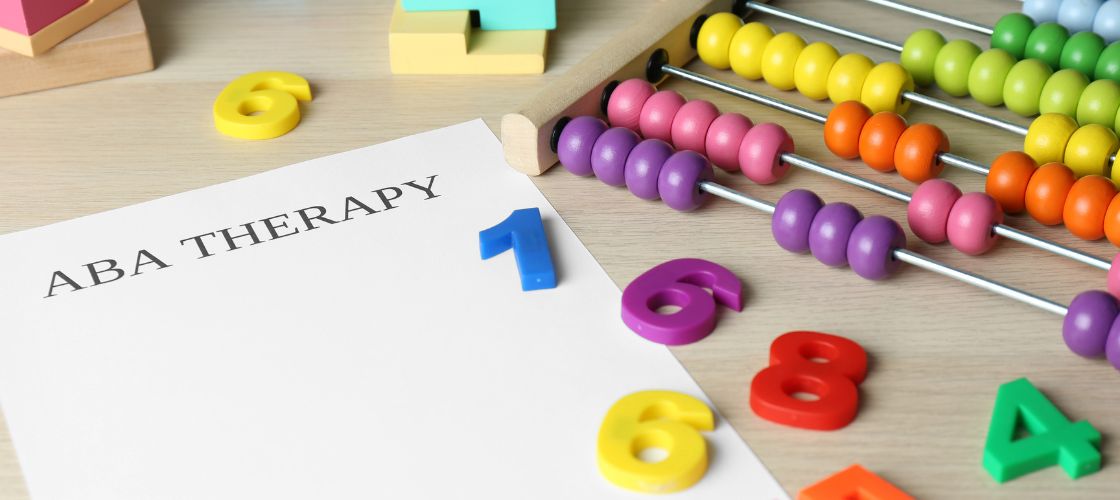Comprehending the Impact of Behavior Therapy on Mental Health
Behavioral therapy plays a necessary duty in boosting psychological health and health. It makes use of organized strategies to determine and change adverse actions and thought patterns. By cultivating self-awareness and psychological strength, people can create much healthier coping approaches. The nuances of its efficiency across different psychological wellness issues and its combination into day-to-day life continue to be complicated. Discovering these elements exposes the extensive influence Behavioral Therapy can have on overall lifestyle.
The Principles of Behavior Treatment
Behavior Therapy is grounded in the principles of discovering theory, highlighting the duty of visible actions in psychological health therapy. This method is based on the premise that habits are found out and can be unlearned or customized through appropriate interventions. It concentrates on the interaction between feelings, activities, and ideas, assuming that altering maladaptive behaviors can result in improved emotional and psychological wellness.
Central to this therapy is the idea of reinforcement, where favorable or unfavorable stimuli influence habits change. Additionally, Behavior Therapy focuses on quantifiable outcomes, intending to track progress with observable adjustments. It also identifies the importance of context, promoting for an understanding of ecological elements that add to behavior patterns. By using these concepts, Behavior Treatment addresses a large range of mental health issues, making it a versatile and effective treatment option for individuals seeking to boost their psychological wellness through structured behavioral modifications.
Typical Techniques Made Use Of in Behavior Therapy
Typical techniques utilized in Behavior Therapy play an important role in dealing with different psychological health and wellness problems. This discussion will highlight cognitive behavior methods, exposure therapy methods, and reinforcement approaches, each adding distinctively to the therapeutic procedure. Understanding these techniques can boost understanding of just how Behavioral Therapy effectively advertises psychological wellness.
Cognitive Behavior Techniques
While numerous approaches exist within the domain of therapy, cognitive behavior techniques stand apart for their structured approaches targeted at attending to unfavorable thought patterns and habits. These techniques normally entail determining altered cognitions, testing these thoughts, and changing them with more well balanced perspectives. Usual techniques include cognitive restructuring, where people find out to recognize and modify their automated negative thoughts, and behavioral activation, which encourages engagement in favorable activities to deal with feelings of depression. Furthermore, mindfulness techniques are frequently integrated to improve awareness of ideas and feelings without judgment. By systematically working via these methods, people can develop much healthier coping devices, ultimately causing enhanced mental health and strength versus different emotional challenges.
Direct Exposure Therapy Techniques
Exposure treatment approaches are commonly recognized as effective strategies within Behavioral Treatment, specifically for dealing with anxiety disorders, phobias, and post-traumatic stress problem (PTSD) These methods involve steady exposure to been afraid stimulations, permitting people to confront and refine their worries in a regulated environment. Typical strategies include systematic desensitization, where individuals are slowly revealed to anxiety-provoking situations while practicing leisure methods. Another strategy is flooding, which engages individuals in their worries for a prolonged period, usually bring about fast desensitization. Online reality exposure treatment has actually likewise obtained appeal, enabling individuals to engage with online settings that replicate their fears. On the whole, direct exposure treatment techniques aim to reduce evasion actions and help people develop coping methods, eventually enhancing mental health and health.
Support Methods Discussed
Reinforcement strategies play a crucial role in Behavioral Therapy, using different techniques to encourage wanted habits and diminish undesirable ones. Positive reinforcement involves compensating a habits, making it more probable to persist. This can consist of verbal appreciation, tokens, or substantial benefits. Negative support, on the various other hand, involves removing an undesirable stimulation when a wanted habits takes place, thereby raising its regularity. Punishment techniques might likewise be utilized, where an undesirable repercussion follows an undesirable behavior to lower its occurrence. Furthermore, shaping methods gradually reinforce more detailed approximations to the wanted habits. By applying these strategies systematically, specialists can successfully customize habits patterns, promoting mental health and boosting general wellness for people seeking support in managing their conditions.
Effectiveness of Behavior Treatment for Numerous Mental Wellness Issues
Behavioral Therapy has actually shown substantial performance in dealing with different psychological health and wellness problems, especially stress and anxiety problems and anxiety. Study shows that individuals undertaking Behavior Therapy commonly experience significant improvements in managing their symptoms. This discussion will explore the specific success prices connected with these therapies for anxiety and anxiety.
Anxiousness Disorders Treatment Efficacy
Anxiousness disorders can substantially harm everyday performance, study regularly shows the effectiveness of behavioral therapy in easing signs and symptoms. Different kinds of Behavioral Treatment, consisting of cognitive-behavioral treatment (CBT), have shown considerable success in treating anxiousness conditions such as generalized anxiousness condition, social anxiety disorder, and panic attack. These therapies concentrate on recognizing and customizing adverse idea patterns and habits, gearing up individuals with dealing techniques to handle their anxiousness. Researches show that individuals usually experience a reduction in anxiousness degrees, enhanced coping systems, and boosted total top quality of life adhering to therapy. In enhancement, the structured nature of Behavioral Treatment enables for measurable development, making it a favored selection among mental wellness experts for resolving anxiety-related issues successfully.
Anxiety Management Success Fees
Anxiety disorders and clinical depression often co-occur, leading to overlapping treatment methods, especially in the domain name of Behavior Therapy. Study indicates that cognitive-behavioral therapy (CBT), a noticeable kind of Behavior Treatment, has actually shown substantial success in managing clinical depression. Research studies reveal navigate to this website that roughly 60-70% of people receiving CBT for depression experience a notable decrease in symptoms. This effectiveness is credited to CBT's organized strategy, which gears up individuals with coping systems and cognitive restructuring strategies. Additionally, the combination of Behavioral Treatment with pharmacotherapy can improve success rates, supplying a comprehensive approach for those dealing with severe clinical depression. Generally, Behavioral Treatment remains a pivotal treatment for enhancing psychological wellness outcomes in people dealing with anxiety.
The Role of a Therapist in Behavior Modification

Therapists function as overviews and facilitators in the practice of Behavioral Therapy, assisting clients navigate their challenges via structured treatments. They employ numerous methods, such as cognitive restructuring and exposure therapy, to help customers in identifying and changing maladaptive actions and believed patterns. By Clicking Here developing a supportive and non-judgmental atmosphere, therapists cultivate trust fund, which is vital for efficient therapeutic interaction.
Specialists also educate customers regarding the principles of Behavioral Therapy, enabling them to understand the rationale behind specific techniques. This knowledge empowers clients to take an energetic role in their therapy. In addition, specialists keep track of progression, readjusting treatments as required to ensure the most effective end results. They provide responses and encouragement, strengthening favorable adjustments and assisting clients develop coping approaches for future obstacles. On the whole, the specialist's role is pivotal in directing clients towards boosted psychological health and enhanced health with structured therapeutic techniques.

Long-Term Benefits of Behavior Modification
While many people seek Behavioral Treatment to resolve instant challenges, the lasting advantages prolong far beyond initial signs and symptom relief. One considerable benefit is the development of coping methods that improve emotional resilience, allowing people to browse future anxieties better - ABA Therapy. Clients usually report enhanced self-awareness, which cultivates a better understanding of their ideas and actions, promoting healthier decision-making processes
On top of that, Behavior Therapy can bring about sustained improvements in interpersonal connections. By discovering reliable communication and problem-solving skills, people might experience much deeper links useful content with others, minimizing feelings of isolation. Additionally, several locate that these therapeutic methods add to a proactive method to mental health, enabling them to handle prospective obstacles prior to they rise.
Ultimately, the long-term influence of Behavioral Therapy can cause a much more fulfilling life, characterized by raised psychological security, improved partnerships, and a greater feeling of total well-being.
Incorporating Behavior Therapy Into Every Day Life
Structure on the long-term benefits of Behavior Therapy, incorporating its principles into every day life can further improve emotional resilience and health. Individuals can start by including simple methods, such as cognitive restructuring, which involves difficult adverse ideas and replacing them with even more positive options. Developing a regimen that includes mindfulness techniques, like reflection or deep breathing, can also cultivate awareness of behaviors and feelings.
Furthermore, establishing possible goals and celebrating tiny triumphes can strengthen self-efficacy and motivation. Participating in regular physical task not only improves mood yet likewise helps keep the technique found out with treatment. In addition, cultivating helpful partnerships and open interaction can give essential psychological support. By actively using these Behavior Treatment strategies, individuals can cultivate a much healthier mindset, navigate everyday difficulties more effectively, and contribute to a general enhanced high quality of life.
Frequently Asked Concerns

How Long Does Behavior Modification Usually Last?
Behavioral Treatment typically lasts from a few weeks to numerous months, relying on particular issues and private requirements being dealt with. Sessions typically occur weekly, with progression evaluations guiding the duration of the treatment.
Can Behavior Modification Be Done Online?
Behavior Treatment can certainly be conducted on the internet, using video clip conferencing platforms. This technique offers adaptability and availability, allowing individuals to involve with their therapists from the comfort of their homes, maintaining healing connection.
What Should I Expect in My Initial Session?
In the very first session, clients can expect an introductory conversation, analysis of their concerns, and facility of therapy objectives - ABA Therapy. The therapist may explain the process and deal with any type of inquiries to produce a comfy setting
Are There Any Type Of Adverse Effects of Behavior Treatment?
Behavior Therapy generally has couple of adverse effects, but some individuals might experience temporary discomfort, psychological distress, or increased stress and anxiety as they face challenging ideas and actions. These reactions generally lessen as treatment proceeds and coping methods create.
Exactly how Do I Find a Certified Behavioral Therapist?
To locate a qualified behavioral specialist, individuals must seek recommendations from medical care suppliers, inspect on-line directory sites, and validate qualifications. Additionally, checking out testimonials and organizing initial consultations can aid examine compatibility and competence before deciding.
Exposure therapy approaches are commonly identified as efficient strategies within behavior therapy, especially for dealing with stress and anxiety problems, fears, and post-traumatic stress problem (PTSD) Numerous types of behavior therapy, consisting of cognitive-behavioral therapy (CBT), have actually revealed considerable success in dealing with anxiety problems such as generalised anxiousness disorder, social anxiousness disorder, and panic disorder. Research indicates that cognitive-behavioral treatment (CBT), a prominent kind of behavioral therapy, has actually demonstrated substantial success in managing clinical depression. While many people seek behavioral treatment to attend to prompt difficulties, the lasting advantages expand far past first symptom alleviation. Behavioral therapy typically has few side effects, yet some individuals might experience short-lived discomfort, psychological distress, or enhanced stress and anxiety as they confront tough ideas and behaviors.